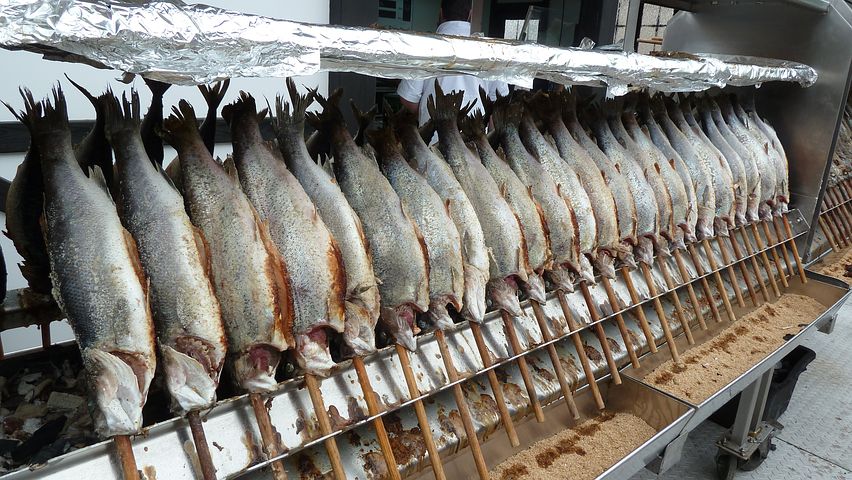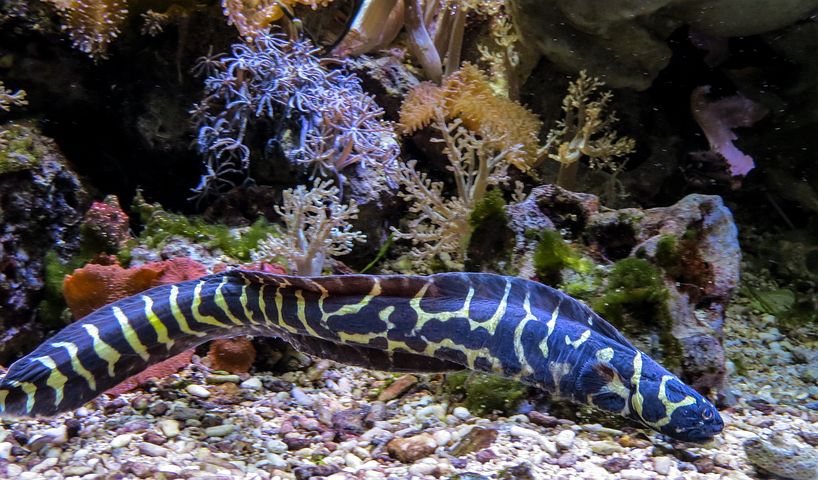
If you are not a lover of fish, then good, but if you are, after reading this, you might need to have a rethink. Fish can serve as either a power food or an inflammatory, toxic nightmare for your body, all depending on what fish you choose. That why it’s so important to pay attention to (and avoid) the fish you should never eat.
It’s incredibly important to get ample omega-3 fatty acids, and certain fish can serve as potent sources. But due to issues like mining, sewage and fossil fuel emissions, heavy metals like mercury are winding up in the water and building up in our fish. Unfortunately, low-level mercury poisoning from contaminated seafood is a real threat and can lead to devastating effects on health.

Not only that, but some fish have also been so overfished that they are on the brink of collapse, which can have detrimental effects on the ocean ecosystem. Luckily, there are healthy, low contaminant choices with stable populations that serve as much smarter choices.
The short list out of a much bigger platter of fishes you should not eat includes;
Sturgeons

Although Beluga sturgeons are especially targeted for their eggs, other sturgeons are at risk as well. Some even appear on restaurant menus. According to the International Union for Conservation of Nature, sturgeons are “more critically endangered than any other group of species.”
Tilapia
Did you know that in some regards, eating tilapia is worse than eating bacon? In fact, the shift to eating more farmed fish like tilapia is leading to highly inflammatory diets, according to a 2008 study published in the Journal of the American Dietetic Association.

It contains very low levels of beneficial omega-3 fatty acids and, perhaps worse, very high levels of inflammatory omega-6 fatty acids. Sustaining high levels of inflammation in the body can worsen symptoms of autoimmune disorders and may be linked to chronic conditions like heart disease, cancer and diabetes. Of course, wild-caught tilapia is preferable to farmed fish but is very hard to find.
Atlantic Cod
Historically, Atlantic cod is a species proven to be vitally important to feeding the New World civilization and early colonization of the Caribbean Sea. But the heavy fishing over the last thousand years has taken its toll.

In the late 1990s, catastrophe struck: the fishery collapsed. Although the female cod releases more than a hundred millions of eggs, only a few are able to survive to adulthood. If you’re a fan of cod liver oil, make sure it’s not sourced from Atlantic cod. Instead, opt for Alaskan cod caught with a long line, pot or jig.
Caviar
Beluga sturgeons are ancient fish that are highly sought for their fish eggs, aka caviar. In fact, this fish grows to be very large, can live to be 100 years old and can carry several hundred pounds of caviar, which can be worth up to $3,500 a pound.

It is completely gone from several seas/rivers in which it used to live, and scientists fear that it is critically endangered. In other words, it is very highly vulnerable to extinction across its entire range. Without further protection and enforcement of existing efforts, we may forever lose one of the biggest, most interesting fishes in the world – Oceana.
Eel
The “eel” made this list because it is slow to mature and has been overfished in many parts of the world, bringing some populations to collapse. That’s a problem because eels are incredibly important when it comes to protecting our water supplies.

In the Delaware River, for instance, eels are an integral part of spreading mussel populations that serve as natural water filters. Aside from the issues with overfishing, eels tend to readily absorb and store harmful chemicals and contaminants such as polychlorinated biphenyls (PCBs) and flame retardants.
Shark
Sharks are commonly found on fish you should never eat lists for several reasons. As bosses of the sea, they are very high on the food chain. That translates to higher mercury levels you should avoid in both foods and supplements.

But apart from that, most shark species, which are slow to mature and don’t have a lot of offspring, are severely depleted. This is partially due to a high demand for shark fins in Asian cuisine, as well as the fact that sharks are often caught accidentally by the thousands and discarded as waste by tuna and swordfish long line fishers.
Imported Farmed Shrimp
Is shrimp good for you? When it comes to farmed shrimp, which accounts for about 90 percent of the shrimp we consume, then the answer is a resounding “no.” In 2009, Italian researchers discovered that 4-hexylresorcinol, a food additive used to prevent discoloration in shrimp that could reduce sperm count in men and increase breast cancer risk in women.

Shrimp farm ponds are also treated with harmful chemicals and pesticides such as malachite green, rotenone and organotin compounds, all of which can have detrimental effects on health.

